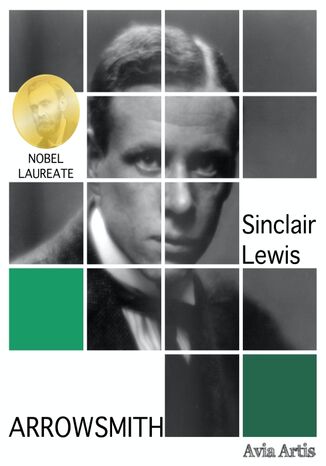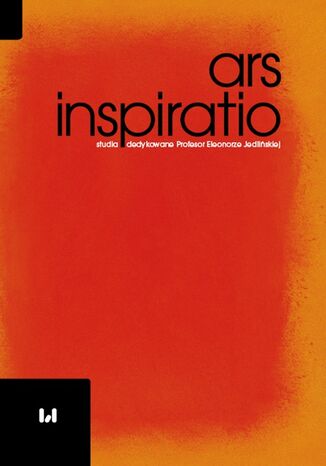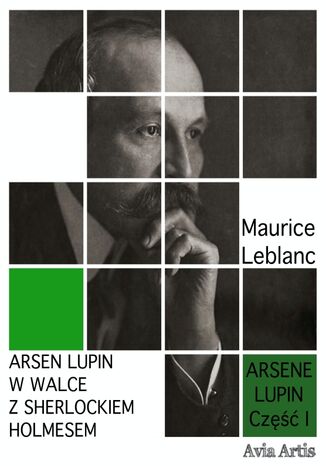Kategorie
-
- Bitcoin
- Bizneswoman
- Coaching
- Controlling
- E-biznes
- Ekonomia
- Finanse
- Giełda i inwestycje
- Kompetencje osobiste
- Komputer w biurze
- Komunikacja i negocjacje
- Mała firma
- Marketing
- Motywacja
- Multimedialne szkolenia
- Nieruchomości
- Perswazja i NLP
- Podatki
- Polityka społeczna
- Poradniki
- Prezentacje
- Przywództwo
- Public Relation
- Raporty, analizy
- Sekret
- Social Media
- Sprzedaż
- Start-up
- Twoja kariera
- Zarządzanie
- Zarządzanie projektami
- Zasoby ludzkie (HR)
-
- Architektura i wnętrza
- BHP
- Biznes i Ekonomia
- Dom i ogród
- E-Biznes
- Ekonomia i finanse
- Ezoteryka
- Finanse
- Finanse osobiste
- Firma
- Fotografia
- Informatyka
- Kadry i płace
- Kobieca
- Komputery, Excel
- Księgowość
- Kultura i literatura
- Naukowe i akademickie
- Ochrona środowiska
- Opiniotwórcze
- Oświata
- Podatki
- Podróże
- Psychologia
- Religia
- Rolnictwo
- Rynek książki i prasy
- Transport i Spedycja
- Zdrowie i uroda
-
- Aplikacje biurowe
- Bazy danych
- Bioinformatyka
- Biznes IT
- CAD/CAM
- Digital Lifestyle
- DTP
- Elektronika
- Fotografia cyfrowa
- Grafika komputerowa
- Gry
- Hacking
- Hardware
- IT w ekonomii
- Pakiety naukowe
- Podręczniki szkolne
- Podstawy komputera
- Programowanie
- Programowanie mobilne
- Serwery internetowe
- Sieci komputerowe
- Start-up
- Systemy operacyjne
- Sztuczna inteligencja
- Technologia dla dzieci
- Webmasterstwo
-
- Antologie
- Ballada
- Biografie i autobiografie
- Dla dorosłych
- Dramat
- Dzienniki, pamiętniki, listy
- Epos, epopeja
- Esej
- Fantastyka i science-fiction
- Felietony
- Fikcja
- Humor, satyra
- Inne
- Klasyczna
- Kryminał
- Literatura faktu
- Literatura piękna
- Mity i legendy
- Nobliści
- Nowele
- Obyczajowa
- Okultyzm i magia
- Opowiadania
- Pamiętniki
- Podróże
- Poemat
- Poezja
- Polityka
- Popularnonaukowa
- Powieść
- Powieść historyczna
- Proza
- Przygodowa
- Publicystyka
- Reportaż
- Romans i literatura obyczajowa
- Sensacja
- Thriller, Horror
- Wywiady i wspomnienia
-
- Archeologia
- Bibliotekoznawstwo
- Filmoznawstwo
- Filologia
- Filologia polska
- Filozofia
- Finanse i bankowość
- Geografia
- Gospodarka
- Handel. Gospodarka światowa
- Historia i archeologia
- Historia sztuki i architektury
- Kulturoznawstwo
- Lingwistyka
- Literaturoznawstwo
- Logistyka
- Matematyka
- Medycyna
- Nauki humanistyczne
- Pedagogika
- Pomoce naukowe
- Popularnonaukowa
- Pozostałe
- Psychologia
- Socjologia
- Teatrologia
- Teologia
- Teorie i nauki ekonomiczne
- Transport i spedycja
- Wychowanie fizyczne
- Zarządzanie i marketing
-
- BHP
- Historia
- Kodeks drogowy. Prawo jazdy
- Nauki prawne
- Ochrona zdrowia
- Ogólne, kompendium wiedzy
- Podręczniki akademickie
- Pozostałe
- Prawo budowlane i lokalowe
- Prawo cywilne
- Prawo finansowe
- Prawo gospodarcze
- Prawo gospodarcze i handlowe
- Prawo karne
- Prawo karne. Przestępstwa karne. Kryminologia
- Prawo międzynarodowe
- Prawo międzynarodowe i zagraniczne
- Prawo ochrony zdrowia
- Prawo oświatowe
- Prawo podatkowe
- Prawo pracy i ubezpieczeń społecznych
- Prawo publiczne, konstytucyjne i administracyjne
- Prawo rodzinne i opiekuńcze
- Prawo rolne
- Prawo socjalne, prawo pracy
- Prawo Unii Europejskiej
- Przemysł
- Rolne i ochrona środowiska
- Słowniki i encyklopedie
- Zamówienia publiczne
- Zarządzanie
-
- Afryka
- Albumy
- Ameryka Południowa
- Ameryka Środkowa i Północna
- Australia, Nowa Zelandia, Oceania
- Austria
- Azja
- Bałkany
- Bliski Wschód
- Bułgaria
- Chiny
- Chorwacja
- Czechy
- Dania
- Egipt
- Estonia
- Europa
- Francja
- Góry
- Grecja
- Hiszpania
- Holandia
- Islandia
- Litwa
- Łotwa
- Mapy, Plany miast, Atlasy
- Miniprzewodniki
- Niemcy
- Norwegia
- Podróże aktywne
- Polska
- Portugalia
- Pozostałe
- Przewodniki po hotelach i restauracjach
- Rosja
- Rumunia
- Słowacja
- Słowenia
- Szwajcaria
- Szwecja
- Świat
- Turcja
- Ukraina
- Węgry
- Wielka Brytania
- Włochy
-
- Filozofie życiowe
- Kompetencje psychospołeczne
- Komunikacja międzyludzka
- Mindfulness
- Ogólne
- Perswazja i NLP
- Psychologia akademicka
- Psychologia duszy i umysłu
- Psychologia pracy
- Relacje i związki
- Rodzicielstwo i psychologia dziecka
- Rozwiązywanie problemów
- Rozwój intelektualny
- Sekret
- Seksualność
- Uwodzenie
- Wygląd i wizerunek
- Życiowe filozofie
-
- Bitcoin
- Bizneswoman
- Coaching
- Controlling
- E-biznes
- Ekonomia
- Finanse
- Giełda i inwestycje
- Kompetencje osobiste
- Komunikacja i negocjacje
- Mała firma
- Marketing
- Motywacja
- Nieruchomości
- Perswazja i NLP
- Podatki
- Polityka społeczna
- Poradniki
- Prezentacje
- Przywództwo
- Public Relation
- Sekret
- Social Media
- Sprzedaż
- Start-up
- Twoja kariera
- Zarządzanie
- Zarządzanie projektami
- Zasoby ludzkie (HR)
-
- Antologie
- Ballada
- Biografie i autobiografie
- Dla dorosłych
- Dramat
- Dzienniki, pamiętniki, listy
- Epos, epopeja
- Esej
- Fantastyka i science-fiction
- Felietony
- Fikcja
- Humor, satyra
- Inne
- Klasyczna
- Kryminał
- Literatura faktu
- Literatura piękna
- Mity i legendy
- Nobliści
- Nowele
- Obyczajowa
- Okultyzm i magia
- Opowiadania
- Pamiętniki
- Podróże
- Poezja
- Polityka
- Popularnonaukowa
- Powieść
- Powieść historyczna
- Proza
- Przygodowa
- Publicystyka
- Reportaż
- Romans i literatura obyczajowa
- Sensacja
- Thriller, Horror
- Wywiady i wspomnienia
-
- Filozofie życiowe
- Komunikacja międzyludzka
- Mindfulness
- Ogólne
- Perswazja i NLP
- Psychologia akademicka
- Psychologia duszy i umysłu
- Psychologia pracy
- Relacje i związki
- Rodzicielstwo i psychologia dziecka
- Rozwiązywanie problemów
- Rozwój intelektualny
- Sekret
- Seksualność
- Uwodzenie
- Wygląd i wizerunek
- Życiowe filozofie
Around the World in Eighty Days
The hero of the novel, Phileas Fogg, made a bet that he would be able to circumnavigate the globe from west to east in no more than 80 days, given the technical capabilities of 19th century transport. Foggs journey begins in England, and then he goes to France, Italy, Egypt, India, China, Japan and America. In India, Fogg and his servant, Jean Passepartout, save the beautiful Audu, who is about to be burned alive with the body of her late husband. Subsequently, she becomes Foggs wife. Detective Fix fixes the journey: the police are convinced that it was Fogg who stole a large sum from the Bank of England, and betting is an opportunity to evade punishment.
“Arrowsmith” is a book by Sinclair Lewis an American writer. In 1930, he became the first writer from the United States to receive the Nobel Prize in Literature. “Arrowsmith” is a novel by Sinclair Lewis. It won the 1926 Pulitzer Prize (which Lewis declined). Arrowsmith tells the story of bright and scientifically minded Martin Arrowsmith of Elk Mills, Winnemac (the same fictional state in which several of Lewis's other novels are set), as he makes his way from a small town in the Midwest to the upper echelons of the scientific community at a prestigious foundation in New York City.
Ars inspiratio. Studia dedykowane Profesor Eleonorze Jedlińskiej
Aneta Pawłowska, Krzysztof Stefański, Magdalena Milerowska
Prezentowany zbiór studiów jest dedykowany Profesor Eleonorze Jedlińskiej, wybitnej historyczce sztuki, znakomitej nauczycielce i wieloletniej kierowniczce Katedry Historii Malarstwa i Rzeźby Uniwersytetu Łódzkiego. Książka odzwierciedla różnorodne nurty współczesnej humanistyki, ze szczególnym uwzględnieniem historii sztuki. Podzielona została na trzy części zatytułowane: SPOJRZENIE W PRZESZŁOŚĆ, W KRĘGU SZTUKI ŻYDOWSKIEJ oraz SZTUKA NOWA, SPOJRZENIE W PRZYSZŁOŚĆ. Problematyka ta konweniuje z badaniami Pani Profesor obejmującymi zagadnienia z zakresu teorii i metodologii historii sztuki, sztuki żydowskiej oraz sztuki wobec Zagłady. Teksty zawarte w tomie zainteresują nie tylko historyków sztuki, ale również kulturoznawców, filozofów, historyków i architektów.
Krzysztof Kamil Baczyński Juwenilia II Ars poetica Wiersz jest we mnie zły, obcy, zły i nienawistny, i pali moje noce gorejącym ogniem, idzie przeze mnie tłumny, rozkrzyczany sobą jak pochód ulicami niosący pochodnie. Wiersz jest zły, nienawistny, chce rozerwać formę (jak to ciężko zakuwać wolnego w kajdany), chociaż wydrę go z głębi palącego wnętrze, nigdy całkiem ... Krzysztof Kamil Baczyński Ur. 22 stycznia 1921 r. w Warszawie Zm. 4 sierpnia 1944 r. w Warszawie Najważniejsze dzieła: Pokolenie, Historia, Bez imienia, Dwie miłości, Z głową na karabinie Poeta, rysownik. Twórczość poetycką rozpoczął już jako uczeń gimnazjum im. Stefana Batorego w Warszawie, gdzie w 1939 r. zdał maturę. Związany ze środowiskiem młodzieży lewicowej, m.in. z organizacją Spartakus działającą półlegalnie w szkołach średnich. W czasie okupacji niemieckiej zbliżył się do ugrupowań socjalistycznych, wydających podziemne pisma Płomienie i Droga. Od 1943 r. uczestniczył w tajnych kompletach polonistycznych, w tymże roku wstąpił do Harcerskich Grup Szturmowych, które stały się zalążkiem batalionu AK Zośka oraz ukończył konspiracyjną szkołę podchorążych rezerwy. Uczestnik powstania warszawskiego; poległ w walce przy Placu Teatralnym (Pałac Blanka); w parę tygodni później zginęła w powstaniu żona poety Barbara, którą poślubił w 1942 r. Nie licząc dwóch zbiorków odbitych na hektografie w 7 egzemplarzach w 1940 r. i kilku wierszy w antologiach Pieśń niepodległa i Słowo prawdziwe, zdążył ogłosić, pod pseudonimem Jan Bugaj, dwa konspiracyjne zbiory: Wiersze wybrane (1942) i Arkusz poetycki (1944) wydane nakładem Drogi. W 2018 roku został pośmiertnie odznaczony Krzyżem Komandorskim Orderu Odrodzenia Polski. Kupując książkę wspierasz fundację Nowoczesna Polska, która propaguje ideę wolnej kultury. Wolne Lektury to biblioteka internetowa, rozwijana pod patronatem Ministerstwa Edukacji Narodowej. W jej zbiorach znajduje się kilka tysięcy utworów, w tym wiele lektur szkolnych zalecanych do użytku przez MEN, które trafiły już do domeny publicznej. Wszystkie dzieła są odpowiednio opracowane - opatrzone przypisami oraz motywami.
Arsen Lupin w walce z Sherlockiem Holmesem
Arsne Lupin kontra Herlock Sholmsto drugi zbiór opowiadań o Arsnie Lupin napisany przez Maurice'a Leblanc'a, zawierający dwie przygody w pojedynku rozumów między Lupinem a Herlockiem Sholmsem. Pierwsza historia, Blondynka, rozpoczyna się od zakupu antycznego biurka przez profesora matematyki. Biurko zostaje następnie skradzione, jak się okazuje, przez Arsne'a Lupina. Później, zarówno Lupin, jak i profesor zdają sobie sprawę, że los na loterię, pozostawiony przypadkowo na biurku, jest zwycięskim kuponem... Żydowska lampa to apel do Herlocka Sholmsa o pomoc w odzyskaniu żydowskiej lampy. Po przeczytaniu apelu Sholms jest zszokowany przeczytaniem drugiego listu, tym razem od Lupina i przychodzącego tego samego dnia pocztą, w którym ostrzega go, by nie interweniował. Sholms jest oburzony zuchwałością Lupina i postanawia wyjechać do Paryża. Na dworcu Gare du Nord Sholms zostaje zaczepiony przez młodą damę, która ponownie ostrzega go, by nie interweniował, i odkrywa, że Echo de France, gazeta Lupina, obwieszcza jego przybycie. Sholms przystępuje do śledztwa w sprawie zbrodni i odkrywa prawdziwy powód apelu Lupina o nieinterweniowanie...
Arsen Lupin w walce z Sherlockiem Holmesem
“Arsen Lupin w walce z Sherlockiem Holmesem” to pierwsza część serii książek Maurice’a Leblanca o przygodach Arsena Lupina, dżentelmena - włamywacza. “Arsen Lupin w walce z Sherlockiem Holmesem” zbiór dwóch opowiadań Maurice’a Leblanca opisujących przygody Arsène’a Lupina, w nawiązaniu do postaci Sherlocka Holmesa, bohatera kryminałów Conan Doyle'a.
Arsene Lupin. 12 Novels and Short Story Collections. MultiBook
Arsene Lupin is a fictional gentleman thief and master of disguise created by French writer Maurice Leblanc. Arsene Lupin is a literary descendant of Pierre Alexis Ponson du Terrails fictional character Rocambole. Like him, he is often a force for good, while operating on the wrong side of the law. Those whom Lupin defeats are worse villains than he is. The book includes the following works: The Extraordinary Adventures of Arsene Lupin, Gentleman Burglar; Arsene Lupin Versus Herlock Sholmes; The Hollow Needle; 813; The Crystal Stopper; The Confessions of Arsene Lupin; The Woman of Mystery; The Golden Triangle; The Secret of Sarek; The Teeth of The Tiger; The Eight Strokes of The Clock; Arsene Lupin. Based on Play by Maurice Leblanc and Francis De Croisset.
Arsene Lupin. 12 romans et recueils de nouvelles. MultiBook
Arsene Lupin est un personnage de fiction français créé par Maurice Leblanc. Ce gentleman cambrioleur est particulierement connu pour son talent user de déguisements et changer didentité pour commettre ses délits. Le livre comprend les ouvrages suivants: Arsene Lupin gentleman-cambrioleur; Arsene Lupin contre Herlock Sholmes; LAiguille creuse; 813; Le Bouchon de cristal; Les Confidences dArsene Lupin; LÉclat dobus; Le Triangle dOr; LÎle aux trente cercueils; Les Dents du tigre; Les Huit coups de lhorloge; La Comtesse de Cagliostro.
Arsene Lupin. 8 powieści i zbiorów opowiadań. MultiBook
Arsene Lupin (także Arseniusz Lupin) to dżentelmen włamywacz, bohater licznych powieści i opowiadań francuskiego pisarza Mauricea Leblanca. Jest mistrzem charakteryzacji. Potrafi znaleźć wyjście z każdej, nawet najbardziej beznadziejnej sytuacji. Żyje z kradzieży, ale jego ofiarami padają zawsze złoczyńcy. Działając poza prawem, wymierza im sprawiedliwość. W tomie znalazły się następujące powieści i zbiory opowiadań: Arsene Lupin, dżentelmen włamywacz, Arsene Lupin kontra Herlock Sholmes, Wydrążona iglica, Kryształowy korek, Zwierzenia Arsenea Lupin, Złoty trójkąt, Zęby tygrysa i Hrabina Cagliostro.
Arsene Lupin. Based on Play by Maurice Leblanc and Francis De Croisset
This early work was originally a four-act play written by Maurice Leblanc and Francis de Croisset in 1908, and subsequently novelized by Leblanc and then translated by Edgar Jepson into English and published in 1909. Leblancs creation, gentleman thief Arsene Lupin, is everything you would expect from a French aristocrat witty, charming, brilliant, sly and possibly the greatest thief in the world. In this classic tale, Lupin plans to steal priceless objects of art and jewelry from a collector for his own private collection. His brilliant effrontery in the face of the police dares them to catch him with spectacular results! Theres romance, deception, and always something strange going on with all of the characters, really just an overall great read.
Arsene Lupin contre Herlock Sholmes
Arsene Lupin contre Herlock Sholmes! Que daventures! Que de lintrigue! Que du bonheur! Lhomme qui défie toutes les polices françaises contre une sorte de phénomene dintuition, dobservation et dingéniosité. Lauteur nous plonge directement au coeur de laction et nous présente son personnage-clé sous son aspect du gentleman voleur. Leur bataille est un grand spectacle. Ce roman vas vous faire avoir hâte de retrouver les aventures dArsene Lupin.
Arsene Lupin, dżentelmen włamywacz
Fascynujący tom przygód najsłynniejszego w historii włamywacza, który wymierza sprawiedliwość, okradając wyłącznie nikczemników i bogaczy. Książka stanowiąca kamień węgielny całej sagi, w której po raz pierwszy śledzimy spryt, szarmancki urok i pewność siebie oraz złodziejski geniusz tego mistrza przebieranek i forteli. Pierwsze dziewięć przypadków Arsenea Lupina zapoznaje nas z całym arsenałem umiejętności włamywacza z klasą, a także dowiadujemy się co nieco o jego przeszłości i motywach, jakie pchnęły go w młodości na drogę złodziejskiej kariery wszystko zaczęło się od naszyjnika królowej. Ale najpierw załoga transatlantyku płynącego do Ameryki dostaje telegraficzną wiadomość, że na pokładzie znajduje się słynny włamywacz Arsene Lupin. O dziwo, zostaje on natychmiast rozpoznany i aresztowany, po czym trafia do więzienia, oczekując na proces. Ku zaskoczeniu władz, przestępca nie tylko informuje, że niestety nie będzie na nim obecny, ale dodatkowo powiadamia pewnego niezbyt uczciwie wzbogaconego na giełdzie barona, nazywanego Szatanem, że zamierza skraść kilka eksponatów z jego cennego zbioru antyków i dzieł sztuki Arsene Lupin jest postacią legendarną i taką pozostanie. To osobnik pełen życia, młody, wesoły, nieprzewidywalny, ironiczny. Złodziej i włamywacz, oszust i blagier jest faktycznie każdym z nich ale jakiż sympatyczny jest ten bandyta!. Marcel L'Heureux, autor powieści La Jeunesse de Philippe Grandier Maurice Leblanc pisząc tę książkę, nie zapomniał, że przede wszystkim i w całym znaczeniu tego słowa jest pisarzem. Doceni to każdy, przeczytawszy ten tom pełen zabawnej ironii, bynajmniej nie amoralny, mimo że paradoksalnie uwodzi nas urok dżentelmena rabującego swoich współczesnych. Jules Claretie, dyrektor Théâtre Français
Arsene Lupin. Dżentelmen włamywacz
Dżentelmen - włamywacz. A niekiedy wyśmienity detektyw. Arsene Lupin zasłynął prawdziwym mistrzostwem w sztuce rabunku dzięki niezwykłej inteligencji oraz sprytowi i talentowi do kamuflażu i charakteryzacji. Jednocześnie był włamywaczem honorowym nigdy nie krzywdził biednych. Z wzajemnością uwielbiał kobiety, a także potrafił znaleźć wyjście nawet z najtrudniejszej sytuacji. Opowiadania kryminalne o detektywie-włamywaczu, które pokochali czytelnicy na całym świecie, w nowej, ekskluzywnej odsłonie! Rozbawią, zaintrygują i zaskoczą najbardziej wymagającego książkofila. A jeśli po lekturze trudno będzie wam się rozstać z Arsenem Lupinem na platformie Netflix czeka serial inspirowany jego przygodami. Niniejsze wydanie zostało wzbogacone o zdjęcia pochodzące z serialu Lupin.
Arsene Lupin. Dżentelmen włamywacz
Pierwszy z cyklu tomów poświęconych przygodom Arsenea Lupinea. Główny bohater jest włamywaczem i bawidamkiem, ale urzeka bystrością umysłu i nienagannymi manierami. To mistrz w swoim fachu błyskotliwy i piekielnie inteligentny łamie szyfry sejfów i niewieście serca. Okrada tylko nikczemników i złych bogaczy, a wspiera potrzebującą biedotę i otacza opieką pokrzywdzonych.
Arsene Lupin gentleman-cambrioleur
Arsene Lupin un Robin des Bois de la Belle Epoque, lénigmatique personnage, le fantaisiste gentleman, qui nopere que dans les châteaux et les salons, linsaisissable cambrioleur dont on racontait les prouesses dans tous les journaux depuis des mois, lhomme aux mille déguisements. Ce nest pas un aristocrate qui vit comme un anarchiste mais un anarchiste qui vit comme un aristocrate. Ajoutons cela la fascination de se mettre du mauvais côté de la loi, ainsi quune allusion non dissimulée Sherlock Holmes, et ce recueil sans prétention au départ ravira tout amateur de littérature policiere.
Arsene Lupin. Hrabina Cagliostro
Poznaj początki kariery słynnego dżentelmena włamywacza Arsene Lupin, występujący pod przybranym nazwiskiem hrabiego Roula, staje się świadkiem przygotowań do egzekucji przepięknej hrabiny. Zauroczony jej pięknem, nie może pozwolić, żeby kobieta straciła życie i oswobadza ją z rąk oprawców. Jakież jest jego zdziwienie, gdy następnego dnia po hrabinie nie ma już śladu. Poruszony i zaintrygowany rozpoczyna poszukiwania, których finał okaże się dla niego wielce nieoczekiwany. Maurice Leblanc z kunsztem plecie intrygę, zabierając czytelnika do Paryża końca dziewiętnastego wieku. Powoli rodzi się dżentelmen włamywacz, który swoich rąk nigdy nie splami krwią. Na platformie Netflix czeka serial inspirowany przygodami Arsenea Lupina.
















